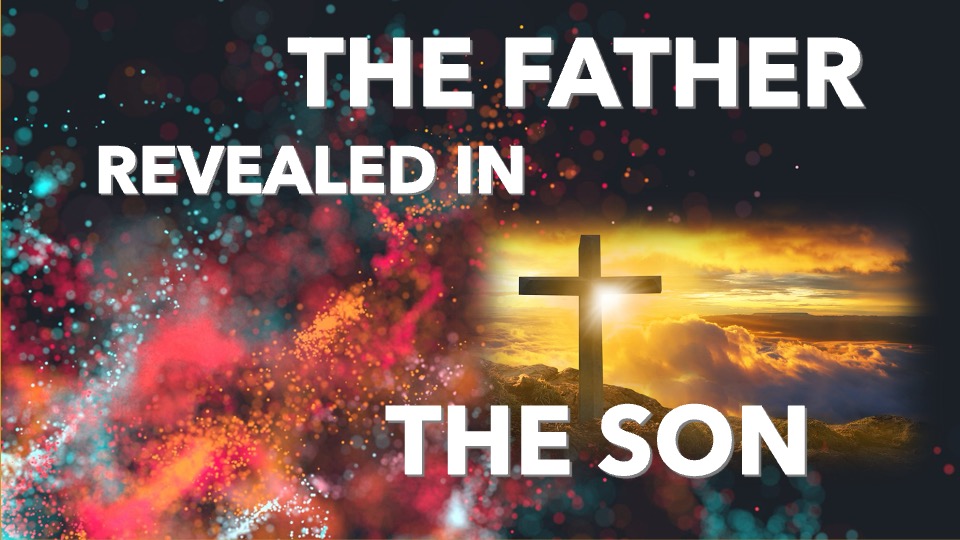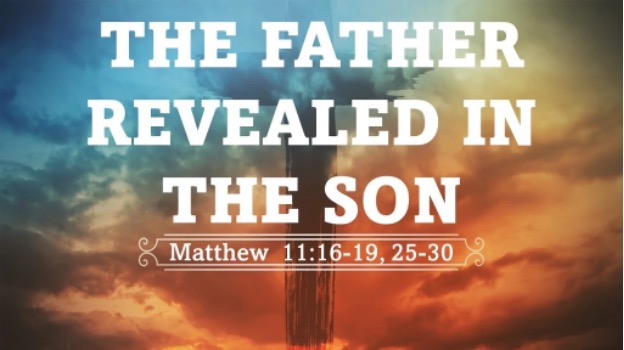Archive for the ‘The Gospel Project’ Category
“A Divine Calling!”
Word of Life Devotional by Sherwin Scott
Therefore, holy brothers [and sisters], you who share in a heavenly calling, consider Jesus, the apostle and high priest of our confession…
Hebrews 3:1 (ESV)
Many people consider themselves to be called to a specific profession or service. They believe that they have been called to be doctors, lawyers, and teachers, or to serve in the armed forces or the local or national government of their country. Maybe they feel they are called to be the leader of a nation as president or prime minister.
Believers in Jesus Christ have received a specific and definite calling into his fellowship. The Apostle Paul explains in 1 Corinthians 1:9: ‘God is faithful, by whom you were called into the fellowship of his Son, Jesus Christ our Lord.’ What exactly is ’the fellowship of his Son’? It is the holy, loving relationship of God the Father, Jesus the beloved Son and the Holy Spirit – a divine relationship that has existed from eternity and will continue forever!
Believers are blessed, privileged, and honored to be called to participate or share in this wonderful relationship. It doesn’t get any better – it is finding the pearl of great value (Matthew 13:45-46), the ultimate calling! And an amazing truth about this special calling is that it cannot be revoked as explained in Romans 11:29: ‘For the gifts and the calling of God are irrevocable.’
Relationships are very important to God, for God is in relationship: Father, Son, and Holy Spirit, a communion of love. And he wants us as his children to participate in the divine relationship, which will continue forever. With this divine calling there is no going back, for God takes no pleasure in anyone who draws back (Hebrews 10:36-38). There is only one way – marching forward into the fullness of God’s glorious kingdom.
Prayer
Heavenly Father, thank you for the invitation to participate in your beautiful relationship. Please help me to respond in a manner that is pleasing to you. In Jesus’s name I pray, Amen.
Study by Sherwin Scott
Photo Compliments: WorldChallenge.org
“Who is The Father Revealed in Jesus?” Pt. 2
Part 2A:
Part 2B
Full Message:
Scripture:
2 Cor 13: 14, Matthew 23: 8-11, John 17
Summary and Goal:
This sermon discusses the importance of understanding the relationship between God the Father, Jesus Christ, and the Holy Spirit. It emphasizes the deep love and joy that comes from being united with the Father through Jesus and the Holy Spirit.
“What I mean is this. An ordinary simple Christian kneels down to say his prayers. He is trying to get into touch with God. But if he is a Christian he knows that what is prompting to pray is also God: God, so to speak, inside him. But he also knows that all his real knowledge of God comes through Christ, the Man who was God—that Christ is standing beside him, helping him to pray, praying for him. You see what is happening. God (THE FATHER) is the thing (ONE) to which he is praying—the goal he is trying to reach. God is also the thing (ONE) inside him which is pushing him on—the motive power. God is also the road or bridge along which he is being pushed to that goal. So that the whole threefold life of the three-personal Being is actually going on in that ordinary little bedroom where an ordinary man is saying his prayers. The man is being caught up into the higher kind of life—what I called Zoe or spiritual life: he is being pulled into God, by God, while still remaining himself.” (P.163) – Mere Christianity by C.S. Lewis
Highlights:
👨👦👦 The Father, Son, and Holy Spirit are distinct persons in the Godhead.
👻 The Holy Spirit is not a commodity, but a person who hears, speaks, sees, inspires, and moves.
🎁 Everything we receive and do comes from the Father through Jesus and in the Holy Spirit.
😇 Joyous days in the Father surpass mere happiness and can be experienced even in affliction and distress.
❤️ The love of the Father is deep and unbreakable, even in the face of trials and persecution.
✝️ The Father’s love was demonstrated through Jesus’ sacrifice on the cross, which reconciled and saved humanity.
🤝 The relationship with the Father is shared through the participation in the Holy Spirit’s fellowship.
“Who Is The Father Revealed In Jesus?” Pt. 1
Pt 1A:
Pt 1B:
Full Message:
Scripture: Isaiah 40: 18-31, Isaiah 46: 3-13, Hebrews 1: 1-3, 1John5, Mark 12, John 17
Summary and Goal:
This sermon is about the importance of knowing and understanding the God and Father of our Lord Jesus Christ. The speaker emphasizes the supreme advantage and relevance of having a relationship with the Father-Son-Holy-Spirit-God as Revealed in Jesus Christ the God/Man.
Highlights:
🙏 Praying to the Father before the message
🌟 The twin doctrines of faith: Who is the Father? What is He doing?
👨👧👦 Father’s Day celebration and addressing everyone
🏛️ The foundation of Jesus Christ and the importance of building on it
📖 Scripture references and teachings on the Father
🌍 The Importance of God the Father for every family
💞 Implications of understanding and relating to God the Father
💡 Knowing the Father gives supreme advantage and relevance in life.
Photo compliments: smoodock45.wordpress
Pentecost And The Coming Of The Holy Spirit!
Part 1A
Part 1B
Scripture: Acts 1, 2
Introduction:
Summary and Goal:
Pentecost was the occasion following Jesus death, resurrection and
ascension when the Holy Spirit was sent as Jesus promised to his
disciples in Jerusalem. Peter proclaimed the fulfillment of the
prophecy of Joel 2:28-32.
Theological Theme:
Jesus Christ is the living Head of the Church, and to whom it looks and is
directed through the Holy Scriptures, by the indwelling Holy
Spirit.
Christ Connection:
Jesus lives in his followers through the presence of the Holy Spirit
indwelling and empowering them to fulfill the great commission of
proclaiming the good news of Jesus in the world.
Missional Application:
The Church, the body of Christ, is composed of people who trust in
Jesus and who are commissioned to make disciples of others in the world.
Photos compliments: pinterest.com
Sin and God’s Good News!

Scripture: Gen 3:1 – 4:8
Introduction:
Summary and Goal:
In the previous two sessions, we saw that God created everything good, including people as the pinnacle of creation. Adam and Eve were made in God’s image and instructed to rule over the world and worship God through their work, rest, and relationships with one another and with Him. As we will see in this session, that didn’t last. Adam and Eve chose to sin against God in open defiance of His goodness and loving provision for them. Their sin had drastic consequences as it brought death to all humanity and ruptured our created purpose. But as dark as that moment was, we will see that it was pregnant with hope—hope that could only come from God in His promise to one day send Someone who would make everything right again.
Theological Theme:
People sinned against God and ruptured our created purpose, but God has provided
forgiveness in Christ Jesus.
Christ Connection:
God promised that one of Eve’s offspring would crush the head of the serpent. Jesus
is the promised One who defeated sin and death once and for all.
“ There is more mercy in
Christ than sin in us.”
–Richard Sibbes (1577-1635)
Missional Application:
Because we have been forgiven through faith in Christ and given His righteousness,
we trust in God and His grace as we fight against sin in our lives and proclaim the
reason for our hope found in Christ Jesus.
Photos compliments: youtube.com
Made In The Image Of God
Bible Verse: Genesis 1:26-31
Introduction:
Because the primary goal of God-Father-Son-Holy-Spirit is that we share in the Divine nature, as it says in 2 Peter 1, we are properly pointed to the primary point of all Christian teaching!
Theological Theme:
God the Father created everything good for His Son. He also created everything good in His Son Who is the pinnacle of creation — sharing in our humanity. In doing so, The Father-Son-Holy-Spirit-God created people to be unique from the rest of His creation and to bear His image in every facet of life. It is in bearing God’s image revealed in Jesus Christ that we find our dignity and purpose and the foundation for our relationships with God and others.
Christ Connection:
Jesus is the image of the invisible God, and as such, He is the perfect Ruler over the world, the One whose perfect work earns our everlasting rest, and the One who restores our relationships with God and others.
Missional Application:
Because we are image bearers of God, in the power of the Holy Spirit we reflect His glory in how we steward the earth, work and rest, and cultivate relationships with Him and others.
Photo Compliments: pinterest.com
Once Greedy, Now Generous!
Bible Verse: 2 Cor 8:1, 2 Cor 9:6-15
Introduction:
The grace of God works deeply into us so that it can also work out of us to benefit others. Grace
hoarded is grace squandered; in fact, it may be grace misunderstood or even unexperienced. God’s
gracious gifts are meant to be held loosely with generosity, not held onto tightly with greed. Our
motivation for living with generosity comes from God’s exceeding generosity to us in giving us the
fullness of His Son despite our total spiritual bankruptcy. Because we have been given the eternal
riches of His glory in Christ Jesus, we are compelled to live generously, not reluctantly, and with joy
and gratitude.
Theological Theme:
God-Father-Son-Holy-Spirit already owns all that we have. He has called us to be stewards of the wealth He entrusts to us.
Christ Connection:
In Jesus Christ, we have both a model and a motivation for generosity. Because God has been
merciful and generous to us by giving us His Son, we are empowered to be merciful and generous
toward others.
Missional Application:
God gives us wealth in order that we might share it with others in need, not out of a sense of guilt or
obligation but cheerfully and willingly.
Photo Compliments: sharinghorizons.com
John Has A Vision Of Jesus!
Part A:
Part B:
Full Message:
Bible Verse: Revelation 1
Introduction:
In the Book of Revelation, Jesus revealed Himself in a vision to His beloved disciple John. He revealed
Himself in the glory of the most holy triune God, affirming that He is the Son of God the Father. He
revealed His power over time, death, and hell, each of which factor significantly in the Book of Revelation.
This vision also revealed Jesus with His church—with us—giving us hope and confidence as we strive to
remain faithful to the mission He has given us while waiting for His return.
Theological Theme:
The reality of Jesus’ glorious presence gives hope to Christians today.
Christ Connection:
When Jesus revealed Himself to John, He pointed to His identity as the First and the Last, the Living
One. He also pointed to the work He accomplished while on earth—defeating death and hell through
His crucifixion and resurrection. The same Jesus who was once crucified in shame is the Jesus who is
now exalted in glory.
Missional Application:
God-Father-Son-Holy-Spirit calls us to believe John’s testimony about Jesus and to trust that Jesus is present with His people as they fulfill His mission!
Photo Compliments: youtube.com
 Leave a comment
Leave a comment






